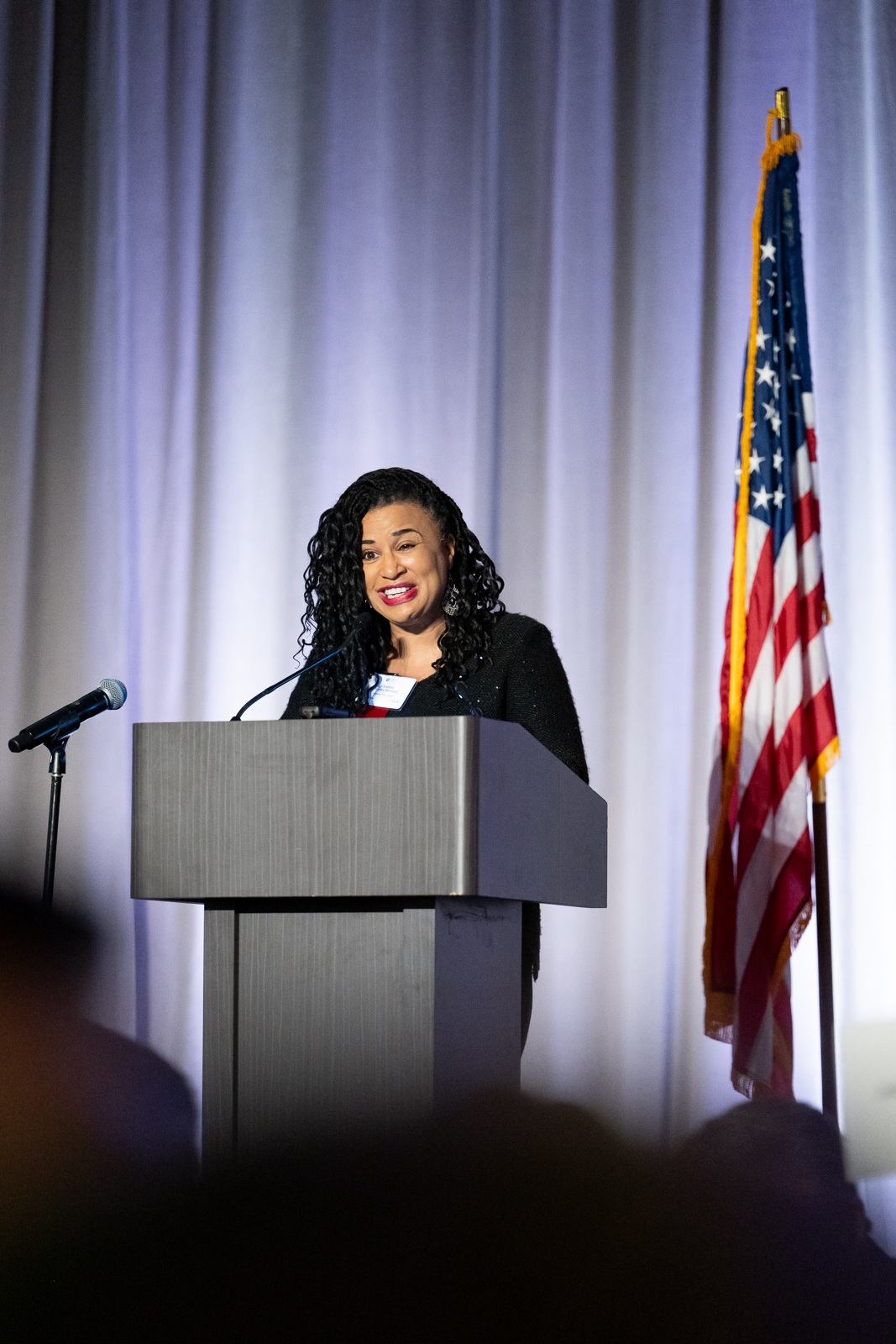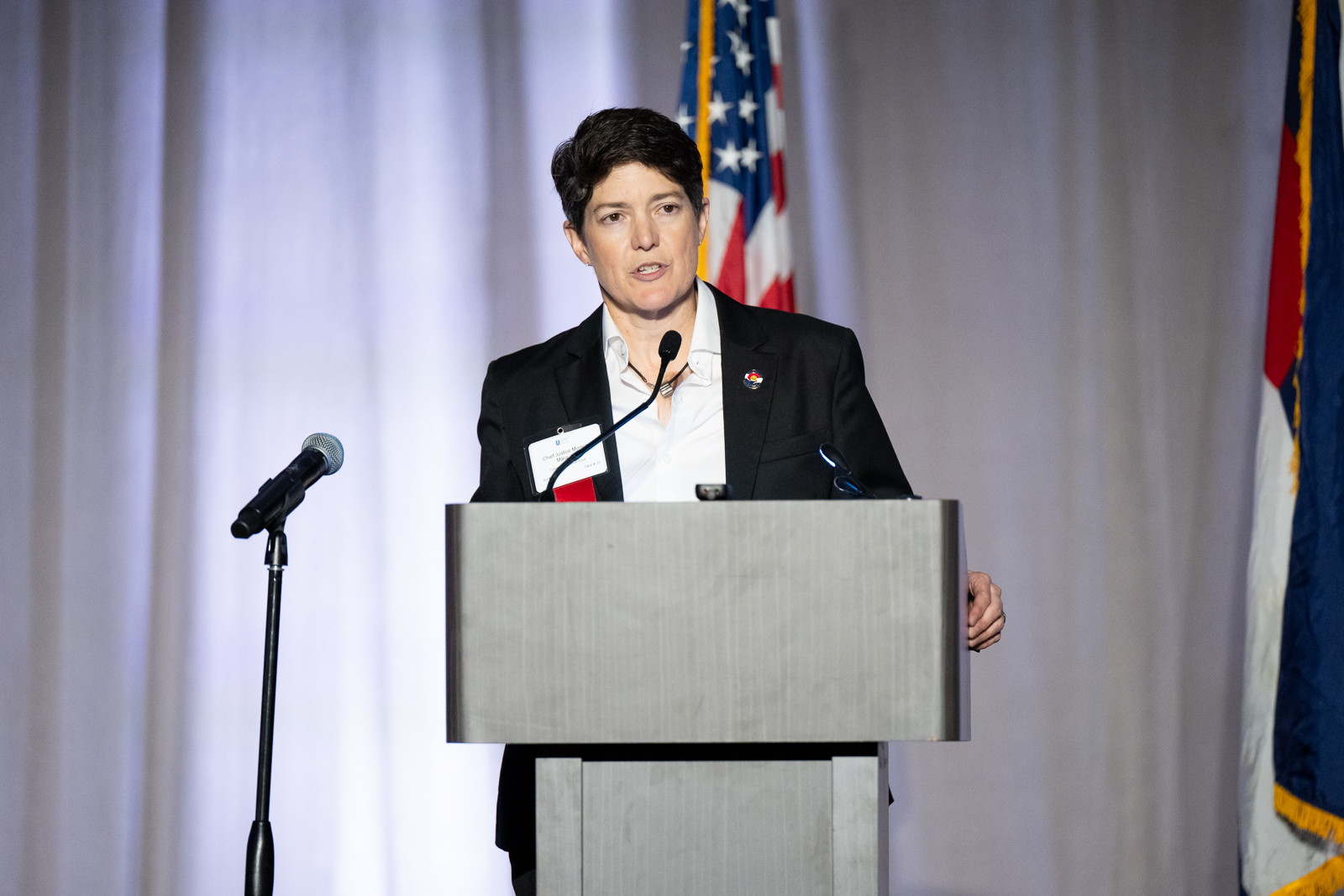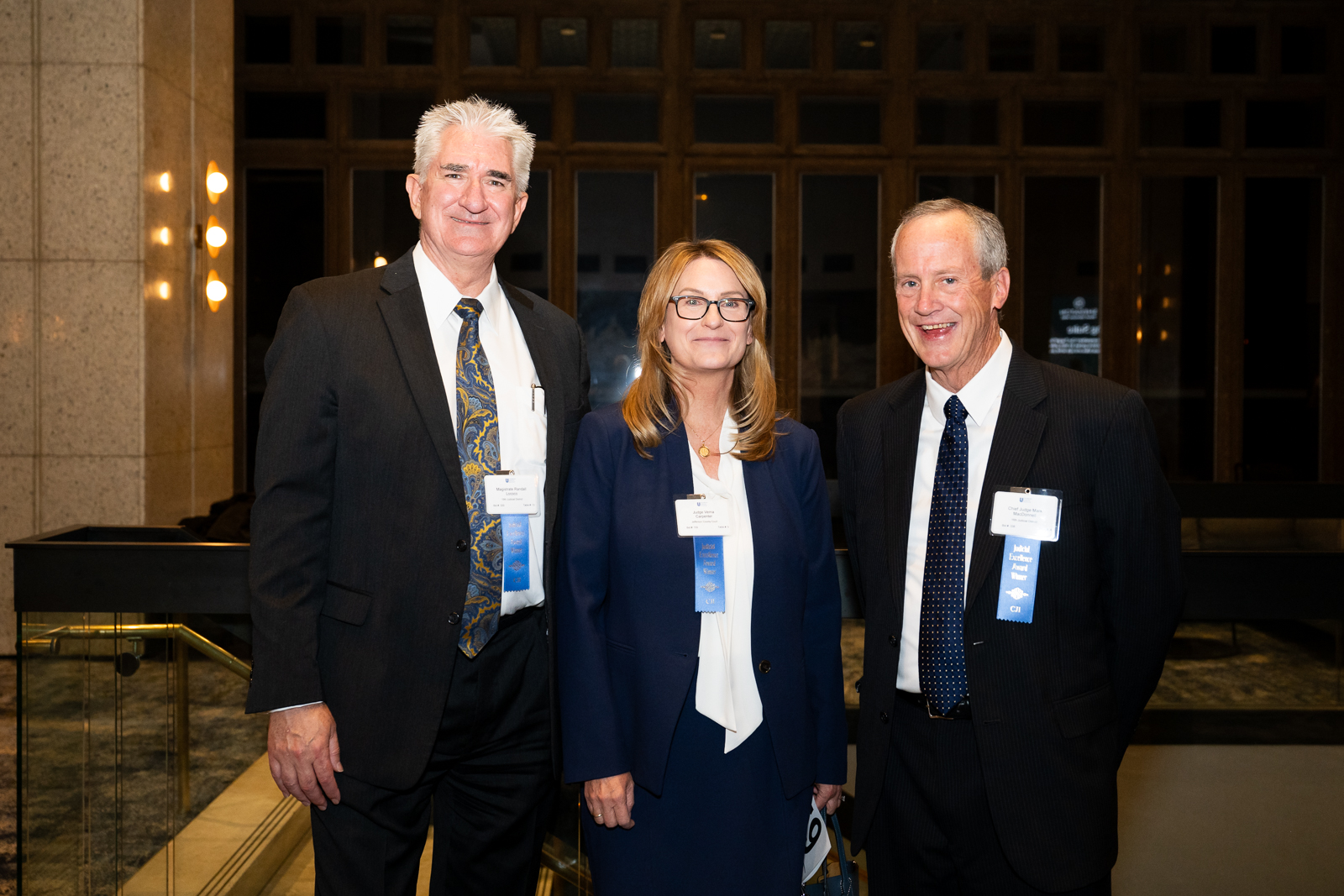
The Colorado Judicial Institute held its annual gala Nov. 7, honoring Weld County Magistrate Randall Lococo, Jefferson County Judge Verna Carpenter and 16th Judicial District Chief Judge Mark MacDonnell.

A welcome speech was given by newly appointed Colorado Supreme Court Chief Justice Monica Márquez, and the evening’s master of ceremony was Colorado Public Radio’s Chandra Thomas Witfield. The night also doubled as a fundraiser for the organization, which supports judges with continuing education opportunities. The evening ended with $37,000 raised for the Colorado nonprofit.
Márquez accepted a certificate of appreciation from the CJI in recognition of the court’s dedication to fairness, justice and the rule of law in Colorado. All three of the state Supreme Court justices who were up for retention were retained in this year’s election.
“It’s an honor, it’s a responsibility, and serving as judges these days also means facing security risks and confronting all sorts of challenges to our mental, emotional and physical well-being.” – Colorado Supreme Court Chief Justice Monica Márquez
Addressing a crowded room of judicial officers, attorneys and legal industry professionals, Márquez shared a personal story to demonstrate her gratitude.
“Our court meets every Thursday morning for conference to discuss and decide cases,” she began. “It’s a very formal affair. We wear suits. We start promptly at nine. It’s bad form to be late, and so I work very hard never to be late to conference.”
She said that roughly a year ago, she was a few minutes late. “I knew that I would be casting probably the most consequential vote of my career,” Márquez explained. “And I’d been lying awake since 2 a.m. thinking about it because I knew what that vote would mean.”
“I understood fully the personal consequences that would flow from it, consequences potentially to my career, consequences potentially in my physical safety, the safety of my family, the safety of my coworkers, my colleagues, my law clerks, my neighbors, and so I was late to conference that morning a few minutes. Why? Because I was in my chamber’s bathroom vomiting from the stress.”
But Márquez said she knew exactly what was on the line with the state Supreme Court’s decision to remove President-elect Donald Trump from the state’s ballot, a decision the U.S. Supreme Court later reversed.

“I want to emphasize I did not relish that at all. I cast it because, in my view, it was what the law required,” Márquez said. “And at the same time, I want to emphasize how deeply I respect my colleagues who disagreed, but I did it because it was my duty, and honestly, each of us did our duty that day to apply the law without fear or favor and without being swayed by public reaction to the decisions that we each concluded the law required.”
“It came at great cost to all of us and I share all that not because I want anyone to feel sorry, because we happened to deal with an especially intense episode of backlash, but I share it because it was a really powerful reminder to me in the role that I occupy,” she explained. “That our trial court judges all around the state, who operate in the trenches every day making tough decisions, face versions of this almost routinely now.”
“Serving as judges, it’s an honor, it’s a responsibility, and serving as judges these days also means facing security risks and confronting all sorts of challenges to our mental, emotional and physical well-being,” Márquez said.

The CJI has specific criteria by which nominees for its judicial excellence awards are measured. Some of those requirements include, but aren’t limited to, efficiently, expeditiously, humanely and objectively managing cases and dockets while remaining in firm control of activities within the courtroom. Awardees must also display a high level of open communication and a demeanor and attitude that makes support accessible to all, and, finally, awardees are innovators who are creative in dealing with courtroom processes.
District court judge nominees need to have served three years full-time, and county court judge and magistrate nominees need to have served three years and can be either part-time or full-time judges.

